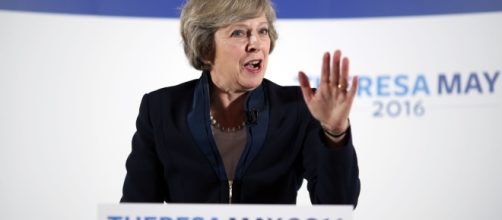Only a week ago, Michael Gove was eliminated in the second ballot of the Conservative leadership election, as Conservative Party members looked to vote for the leadership of either Theresa May or Andrea Leadsom; the former the Home Secretary since 2010, and a leading figure in the party, the latter the Minister of State for Energy and a previously obscure junior minister. However, today, after Leadsom’s withdrawal from the race only two days ago, Theresa May enters 10 Downing Street as the 54th prime minister of the United Kingdom.
Missing a mandate
However, the circumstances of her journey to 10 Downing Street surely call into question the extent of her mandate as Prime Minister. May has stated publicly that ‘there should be no general election until 2020’, and intends to take over directly from David Cameron. But opposition parties have criticised May in this respect; the leader of the Liberal Democrats, Tim Farron, argues that the Tories have ‘no mandate’, as Labour’s election coordinator Jon Trickett calls May’s move a ‘coronation’. Indeed, the Conservatives were elected in 2010 under David Cameron by only 36.9% of the vote. Now, May proposes to pursue significantly different policies than those of Cameron, now with the backing of only 199 MP’s, representing just 0.0003% of the electorate.
Obstacle against snap election.
The Fixed-Term Parliaments Act of 2011 has been cited by supporters of May as an obstacle preventing her from calling a ‘snap’ election. However, this legislation should not be seen as a hindrance to an early general election; provisions have been included to deal with the situation we now find ourselves in. May, as Prime Minister, has the power to put forward a motion for an early election; such a motion would require the support of two-thirds of MP’s, but given outspoken criticism of May’s mandate by members of the opposition, this should not be a problem. Indeed, Nigel Farage, formerly leader of the United Kingdom Independence Party (UKIP), has called for an early election under the system of proportional representational; this would benefit smaller parties such as UKIP, who in 2015 won 12.6% of the vote but only hold one seat in Parliament.
The hypocrisy of leadership.
In 2007, as Gordon Brown replaced Tony Blair as both leader of the Labour Party and Prime Minister of the United Kingdom, Theresa May openly and actively supported an early general election, stating outright that Brown was ‘running scared of the people’s verdict’. Now that she is in this position herself, May seems reluctant to follow her own advice. As Prime Minister, she will be responsible for triggering Article 50, and will lead negotiations over Britain’s departure from the European Union. She must also make important decisions regarding the UK’s economy, healthcare system and foreign conflicts such as that in Syria. However, May has not proposed her position on these as a prime ministerial candidate and as such lacks a clear mandate to make these decisions.
Her supporters claim that there would be a risk of ‘election fatigue’ in calling an early election, and that the EU referendum has caused instability. However, the post-referendum period is perhaps the optimum time to call one, as more and more people become engaged with the political system. They are also right about instability, but a general election would provide clear direction to the prime minister about what the country wants, which would undoubtedly promote stability.
The Conservative Party was elected in 2015 under the leadership of David Cameron and according to the manifesto which he provided. The Conservative Party under Theresa May has a significantly different manifesto, one severely lacking in a mandate from the people whom she proposes to lead.

